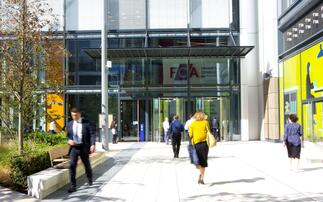The Association of Professional Financial Advisers (APFA) has urged the regulator to re-consider reviewing the way it calculates the fees paid to it by advisers, after plans to overhaul the area were scrapped.
Responding to the Financial Conduct Authority's (FCA) consultation on regulated fees and levies out in March, APFA said it is "particularly pertinent" for the FCA to "explore the extent to which regulated advice can be made more affordable" following the changes to the pension system announced by the chancellor in his March Budget.
The regulator first announced it was going to review the way it allocates fees to firms shortly after its inception last April.
In early November, when the discussion paper was due to be published, it decided to delay its review.
In its fees consultation paper in March it then said it had taken into account the views of stakeholders and "decided that we should continue with the current overall approach".
Stakeholders had not proposed any fundamental alternatives at the outset of the review, it said, while it had found "no broad consensus" on two alternative options proposed.
Accountancy firm BDO, which the FCA hired in December 2013 to help with the research, further highlighted "significant issues" in developing a fee calculation method based on regulated income, particularly in collecting the data.
But APFA director general Chris Hannant (pictured) said the problems uncovered by accountancy firm BDO were not "so problematic as to justify stopping the review at this stage".
"The FCA should reconsider its decision not to review its fees methodology in order to ensure there is a more appropriate allocation of its costs across the different sectors," he added.
The FCA reduced the fees for most advisers after it unveiled plans to re-allocate advisers with permissions to hold client money to a different fee block in October last year.
The regulator's latest fees proposal showed the move cut the advice levy for the coming year by nearly 19%, from £83.6m to £68m.
But APFA argued advisers are still paying a "disproportionate share" of the FCA's costs and - at 15% of the total levy - are paying "more than the banks or the entire insurance industry".
The trade body also criticised the amount advisers have to pay in order to hold a consumer credit licence.
This is currently set at £300 payable to the FCA plus an additional 'nominal fee' for the Financial Ombudsman Service (FOS) and the Money Advice Service (MAS).
APFA said this could not be justified for adviser firms that only obtain the authorisation as a precaution against failing foul of the regulator, and asked for the fee to be reduced to a nominal amount of £25-£30.
APFA also suggested the FOS should refund case fees for cases brought by claims management companies that turn out to be unfounded to the authorised firm.
"This would avoid firms being penalised for cases that should never have been brought," Hannant said.












